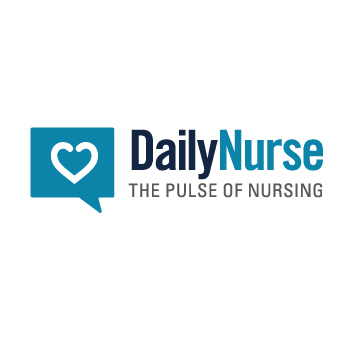For many, going to the doctor’s office is a routine, even boring part of life. But what if something happens, and you don’t know what kind of service you need? What if you don’t have insurance or an established primary care provider? What if you just aren’t familiar with the healthcare sector and its expectations?
“My job is, I change behavior through relationships,” said Lynn Brown, a registered nurse with NKU’s Nurse Advocacy Center for the Underserved, or NACU.
Originally the result of a nursing capstone project, NACU was established in 2006 to help serve communities in the region that lack access to reliable healthcare or struggle to navigate the system.
To that end, NACU has embedded itself into seven on-site clinics throughout Covington, offering basic medical services and education, which underserved populations can access without any out-of-pocket costs or insurance.
“We’re providing for people who don’t have care,” said Jennifer Hunter, the program’s director.
There are a variety of reasons why someone might not have a dedicated healthcare professional. Money is, of course, one reason: Americans spent about $4.9 trillion on healthcare in 2023, according to the most recent publication of National Healthcare Expenditure index, which amounts to about $14,570 per person. That number is expected to climb by 5.6% by 2032.
But even if someone does have private insurance or coverage through Medicare and Medicaid, there are other reasons they might neglect or avoid the healthcare system, some of which are easy to overlook if you’ve never been part of an underserved community yourself.
“The medical system is set up on a middle-class set of values that our folks just do not navigate,” Brown said. “So, I do a lot of navigation for people.”
For instance, keeping an appointment with a doctor’s office requires transport. OK, what if you don’t own a car and need to take a bus? What if the bus is late, and you miss your appointment? Some offices will charge you a fee for missing an appointment or even kick you out of the practice if you do it repeatedly.
Brown gave another example, one that middle-class people likely don’t consider: What if you can’t read? Now, something as seemingly straightforward as filling out paperwork becomes a burden. Ladle on top of that changes to drug manufacturing, understanding insurance polices and the vagaries of modern communications technology, and you have a recipe for certain populations getting left behind.
Often, said Hunter, people will just default to going to the emergency room, especially when they don’t have insurance, when something is wrong, even if it isn’t warranted, because there’s no other obvious place to go if you don’t know how to navigate the system.
One full-time nurse, Brown, three part-time nurses and a handful of volunteers and students staff the program. The sites are scattered throughout Covington – when LINK nky visited the program, we observed it at the Golden Tower, a publicly-owned apartment complex on 11th Street. Other NACU sites include the Emergency Shelter of Northern Kentucky, the Lord’s Gym, the Life Learning Center, Madison Avenue Christian Church and Latonia Terrace, another public-housing complex, among other sites.
“I had a grandma who didn’t trust doctors,” said Golden Tower resident and veteran Robert Veenkant, who was visiting Brown when she stationed in the complex’s clinic. During the appointment, Brown checked Veenkant’s vitals and talked about heart health with him.
Much of Brown’s work, besides the medical part, focuses around building trust with her patients so that they feel comfortable coming to her with problems, especially “really thorny” problems “they just can’t solve.” Other times, it’s helping correct people’s misconceptions or mistrust in the medical system.
One patient, Brown said, refused to take blood pressure medication for months because he had become convinced that taking any medication long-term was the same thing as being addicted.
“Took me three months to educate him differently,” Brown said. Without the mutual trust she’d cultivated with him, he likely would have discontinued the meds.
Sometimes, Brown said, people come to her with non-medical issues, as well, because people had learned she was a source of help.
One woman came to her, Brown said, looking for help booking a long-distance bus trip since she didn’t know how to navigate the internet.
“She said, ‘nobody could tell me how to do this, and they all told me the nurse could figure it out,’” Brown said. “If I had turned her away, she would never have come back, and when she did come back – she started coming in regularly, and she didn’t have any health insurance at the time – we diagnosed her with diabetes and high blood pressure and got her on medication.”
Another Golden Tower resident, Eugene Cannon, was getting his vitals checked when LINK nky visited and was learning how to get an appointment with a specialist to examine his knee.
Getting connected to good insurance has been a challenge, Cannon said, one that’s affected a lot of people.
“The insurance, they change up,” Cannon said. “They’re changing up. Now, a lot of people don’t know that’s why they’re losing their money.”
Hunter said about 3,000 people visit the sites throughout the year. All of the marketing for the program is word of mouth.
“We try to look at the whole person holistically,” Hunter said, in contrast to the overly mechanical point of view that primary care can sometimes take.
“When you go to primary care,” said Hunter, “they just want to fix the disease,” rather than learn about the person’s general life circumstances. As a result, the healthcare sector can sometimes lose sight of the fact that many patients may lack the knowledge to effectively engage with the system, which can lead to a lack of care down the road.
Hunter pointed to something called the social determinants of health, which refer to the overall conditions of a person’s life and environment that play a role in health but aren’t directly medical in nature. These can be factors like one’s employment, housing situation and the quality of one’s personal relationships.

provided by the U.S. Department of Health and Human Services
“It’s really these social determinants of health that are impacting what we do everyday,” Hunter said, especially for people with low incomes or patients who have been historically shut out of the system.
The primary source of funding for the program is a $522,000 federal grant, disbursed through the Kentucky Department for Public Health. The grant expires on June 30, and Hunter is currently seeking donations and alternative funding sources to sustain the program.
“I’ll tell you what, a lot of people need this place,” Venkant said at Golden Tower.
If you’d like to donate to the program, reach out to Jennifer Hunter by emailing her at [email protected].
LINKnky is a media partner of WCPO.com.





